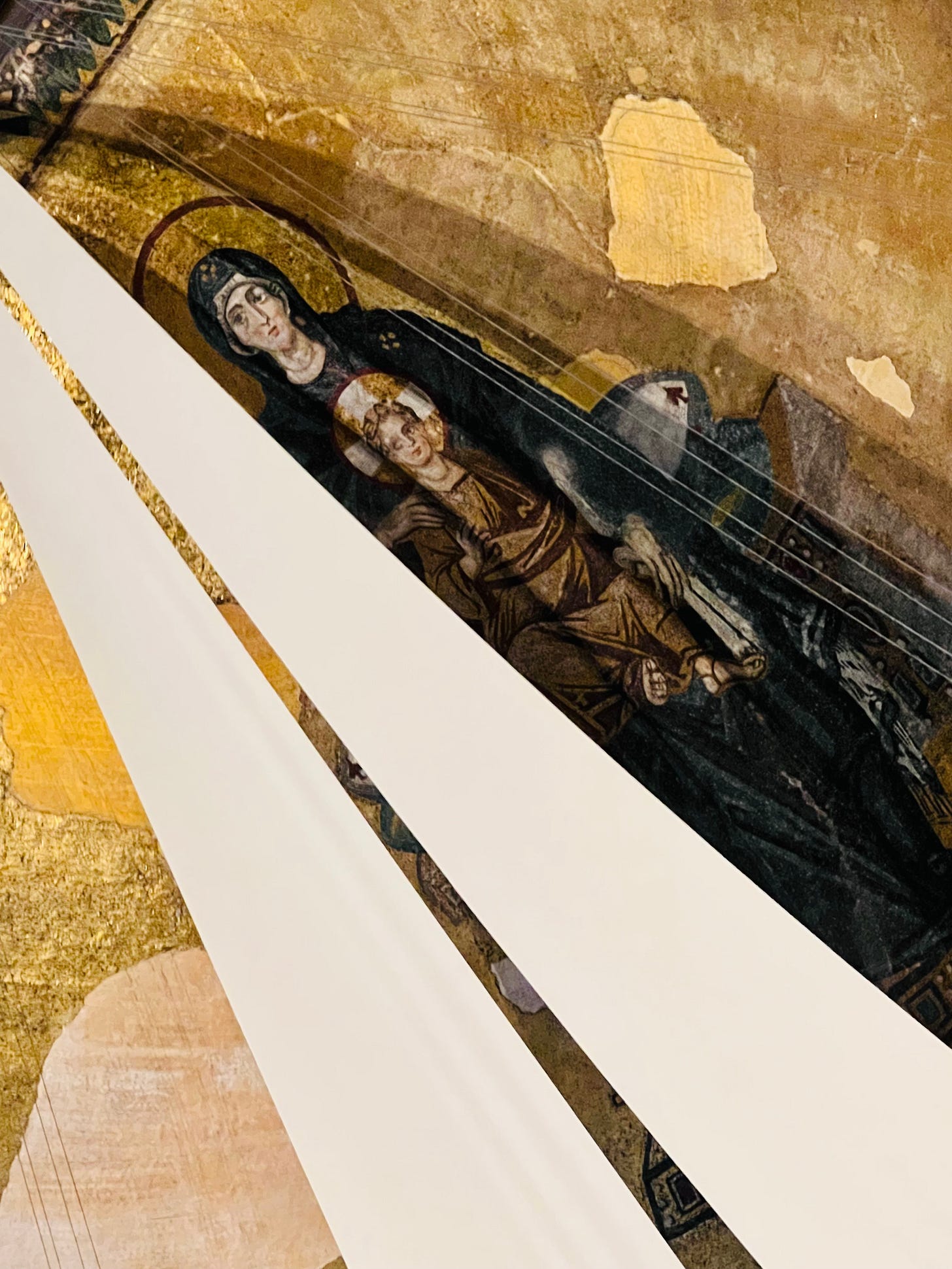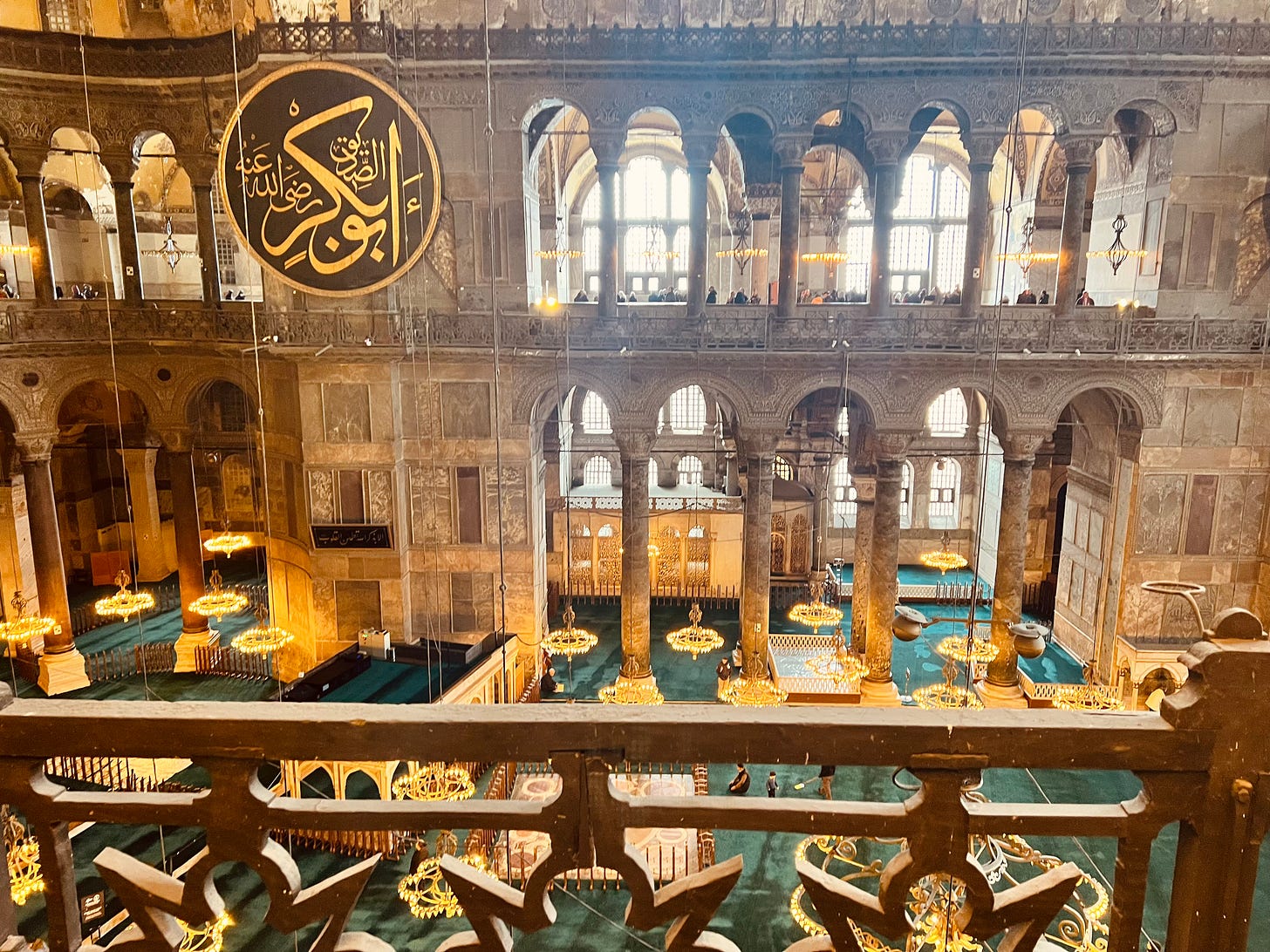Jesus the Risen Prophet
Within an Islamic context, supposing it true, what would be good about this news that a prophet of God lives with death behind him?
Yesterday morning I landed in Istanbul, Turkey to embark on a pilgrimage with friends. Over the next ten days we will explore both the missionary journeys of Paul, the birthplace of the faith’s creedal dogma, and locus of Christianity’s patristic theology. In the same way I might visit Italy to explore the places whence my forebears came to America, I am here because— as much as the Holy Land— Constantinople is where the Christian family traces its roots.
FYI (which I’d never considered before but is obvious to anyone with a grasp of elementary Greek): It’s not the case that one name for the city is Christian and the other its Islamic alternative.
In Greek, εἰς τὴν Πόλιν is pronounced "Ees-teen-po-li" which eventually became Istanbul in modern English. It means "In the city,”and because Constantinople was the most popular and urban city at the time, when asked about Constantinople most would reply with "In the city.”
Today we visited the Hagia Sophia in Istanbul. Built originally in the early sixth century under the direction of the Emperor Justinian and dedicated to the triune identity Wisdom (Hagia means saint, set-apart, holy), it essentially served as the Orthodox Christian equivalent of the Vatican until the city was (finally) conquered by the Ottoman invaders in 1453. After Sultan Mehmed II’s invasion, the Ottomans converted the Christian cathedral to an Islamic mosque. From 1935 until 2019, it functioned as neither church nor mosque but as a museum, a compromise that left both parties unfulfilled and offended.
Turkey’s present-day authoritarian returned the Hagia Sophia to status as a mosque in order to appeal to his voting bloc; as a result, only a few Byzantine Christian images remain in the vast sacred space.
Arching my neck at odd angles and craning my arm out like a selfie-stick, my camera on the edge of my fingertips, I was able to capture a few photographs of ancient icons of Mary, Mother of God and her Son the cosmic judge. The former is screened modestly behind drapes so as to go unseen by worshippers on the floor beneath her. I did so as the chanted Arabic of Muslims’ praying their daily liturgy down below ascended to the domed, pentagonal rooftop of what was once a Christian sanctuary.
It is difficult if not impossible to be a workaday preacher at such a juncture and not ponder the alleged incongruity of faith claims. C̶o̶n̶s̶t̶a̶n̶t̶i̶n̶o̶p̶l̶e̶ Istanbul is ground zero for the nadir of one religious empire and the rise of a successor. The cross remains foolishness to the irreligious and a stumbling block to J̶e̶w̶s̶ Muslims.
Just so, it’s worth reexamining the truthfulness of the assumption that Christianity’s gospel (Mary’s boy and Pilate’s victim lives with death behind him) is incompatible with the revelation received by the Prophet.
To make it plain:
Leaving aside interpretations of the commandment about graven images, so long as the Hagia Sophia remains a mosque, must those who worship there obscure icons of Jesus and his Mother and the forerunner, John the Baptist?
The drapes which hide Mother Mary at the Hagia Sophia and the giant medallions adorned in calligraphic images of the name of Allah (which themselves hide Christian icons) underscore how the stumbling blocks between Islam and Christianity have always been two chief assertions the gospel makes about God:
Mary’s boy sharing one being with the Father.
The LORD who is one constituting his oneness being in triune identities.
Christology and Trinitarianism.
But again— today I wondered anew: is it true these two deposits of faith can find no purchase among those who confess that “there is no God but Allah and Mohammad is his Messenger?”
The very fact Paul’s missionary compulsion brought him to a place that would become Byzantium suggests the answer to my question is no. That is, as soon as the Spirit coaxed the apostolic witness from its kosher kitchens in Israel, the gospel compelled preachers to utter the promise in a foreign milieu, over and against contrary claims. As a living Word, the gospel can never be preached the same way twice; therefore, the gospel would not be gospel if it could not be posited in terms Islam could even now nevertheless accommodate.
For example, the faith's necessary affirmations about Christ Jesus can in the Islamic context be made by calling him the "Risen Prophet."
That is, Christians can get to everything Christians want to say about Jesus by introducing him first as the Risen Prophet and inviting others to so address him.
Keep reading with a 7-day free trial
Subscribe to Tamed Cynic to keep reading this post and get 7 days of free access to the full post archives.






